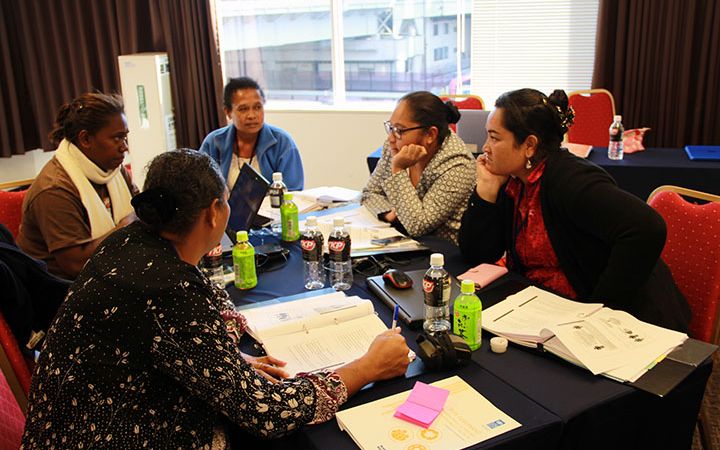Displaying 1751 - 1760 of 2506
Malawi, September 2014 - Providing tools to support teachers is essential in order to promote climate change education in schools. As part of their effort to integrate climate change education in Malawi’s primary school curricula, the Ministry of Education, Science and Technology of Malawi recently launched a publication called Climate Change Sourcebook for Primary School Teachers.
28 September - 1st October 2014, Algiers, Algeria. In the framework of the three-year partnership betweenthe Institute for Diplomacy and International relations (IDRI) of the People’s Democratic Republic of Algeria and the United Nations Institute for Training and Research a retreat entitled “Personal development and Leadership” was organized in Algiers.
13 October 2014, Port of Spain, Trinidad & Tobago - The Americas Award is an initiative of UNITAR and its training centre CIFAL Atlanta to honor remarkable public officials from the Americas who have taken tremendous strides towards the achievement of the United Nations Millennium Development Goals (MDGs). The 2014 Americas Award Ceremony was held on 9 October 2014 in Port of Spain, Trinidad & Tobago.
The work of UNOSAT is widely known across the UN and its members states and appreciated by scores of humanitarian experts and responders in particular.
29 August 2014, Davos, Switzerland - The International Disaster and Risk Conference, organised by the Davos-based Global Risk Forum, convened for the fifth time in the famous mountain resort from 24-28 August, with a focus on science and technology and their role in modern Disaster Risk Reduction.
01 September 2014, Geneva, Switzerland. The concept of a green economy encourages countries to explore new patterns of development taking into account economic, social and environmental sustainability considerations.
24 July 2014, Geneva, Switzerland - UNOSAT just released its latest analysis over the Zaatari Camp in Jordan.
23 July 2014, Geneva, Switzerland - The first meeting of the Preparatory Committee of the World Conference on Disaster Risk Reduction opened in Geneva on 14 July, convened by UNISDR as part of the preparations of the World Conference scheduled for March 2015 in Sendai, Japan. The preparations started in 2012 and are to include over 100 regional and technical meetings to draw input from all stakeholders and players involved in disaster risk reduction.
15 July 2014, Nairobi, Kenya - Since the beginning of the year, UNOSAT is spearheading UNITAR efforts in spreading awareness on the role of satellite technology applications in the area of Disaster Risk Reduction. As preparations for the 3rd World Conference on Disaster Risk Reduction in March 2015 are about to enter their peak phase, experts and delegates gather in regional and thematic venues around the world to shape the new strategy that will guide nations to becoming more resilient in the face of disasters from 2015 onward.


